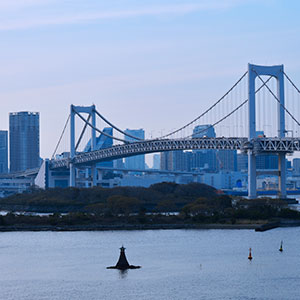Photo: Joao Longo Pereira
It’s time for some real British food and drink in Tokyo
It is to be hoped that Japan might, finally, start to overcome the general disdain for British cooking. The success of the London 2012 Olympic and Paralympic Games, and the vast positive exposure the UK has received this year surely cannot have been for naught.
The quality, choice and skill levels now present in almost all areas of the UK’s blossoming food industry continues to push UK cuisine up the steep path of improvement. This is being helped by a handful of influential celebrity chefs and the UK’s hugely popular MasterChef TV series. Perhaps it is time for a few great British restaurants to open in Tokyo.
Tokyo has over 200,000 restaurants, bars and cafés that serve up everything but the kitchen sink—surely there is some space left for more of what is British.
Forget about food for the moment, what about cutting-edge design, decor, atmosphere and attention to detail? It cannot have gone unnoticed that the levels of grandeur, glamour and excellence found in many of London’s best restaurants are truly world class. Or can it?
Tokyo’s huge population of young, cash-rich, brand-obsessed consumers are always eager to snap up the must-haves of each season. As a result, one would have thought some of London’s slick, ultra modern restaurants would have appeared in Tokyo by now, purely as a fashion statement.
But what is modern British cuisine anyway, and why would Japan enjoy it, “if they could just get it?”
Believed to have started in the UK after rationing ended following World War II, modern British cuisine did not find a strong foothold until the late 1980s.
This style of cooking uses high-quality local ingredients, prepared in ways to combine traditional British recipes with modern innovations. It has similarities with the Slow Food movement that preserves traditional and regional cuisine.
In addition, most modern British cooking draws heavily on influences from Mediterranean cuisines and, more recently, those of the Middle East, South Asia, East Asia and South-East Asia. The traditional influence of northern and central European cuisines remains significant, but is fading.
I believe this farm-to-table attitude would work very well in Japan, and would certainly combine well with the country’s recent eco-friendly boom.
Lastly, lets not forget the poor old pub. Do we really have to endure the same mediocre, predictable working-class pubs in Tokyo for the foreseeable future? At least one pub in Japan should show what a modern day establishment can be at its best—offering not just limp fish ’n chips, beer mats, darts, quiz nights and large-screen TVs.
How about some style for a change? Something similar to an old gentleman’s club from the London suburb of Mayfair would be appropriate. It could even specialise in fine beverages—something in which the UK certainly excels (forget the bad beer).
Given London’s unrivalled excellence in creating chic cocktail bars, world-class mixologists, and the UK’s love affair with fine wine, Scotch whisky and the recent boom in crafted spirits such as gin, the UK surely would have an advantage in Japan.
The pub—even without considering food—is still a concept that has much more to offer. Include some decent, relevant food and any investor would be on to a sure winner.
As both a chef and a Brit, I would love to take on such a challenge.
In Tokyo, let’s have one or two decent modern British restaurants or world-class pubs (Gordon Ramsay at the Conrad Tokyo excepted), for crying out loud!
No need for more French chocolatiers, Michelin-starred Chinese restaurants, molecular gastronomy concoctions, and certainly no more predictable and bland Japanese interpretations of wine bars, cafés or pasta joints.
Gordon: you have the entire UK food market here to yourself … for now. Enjoy it before it changes!





